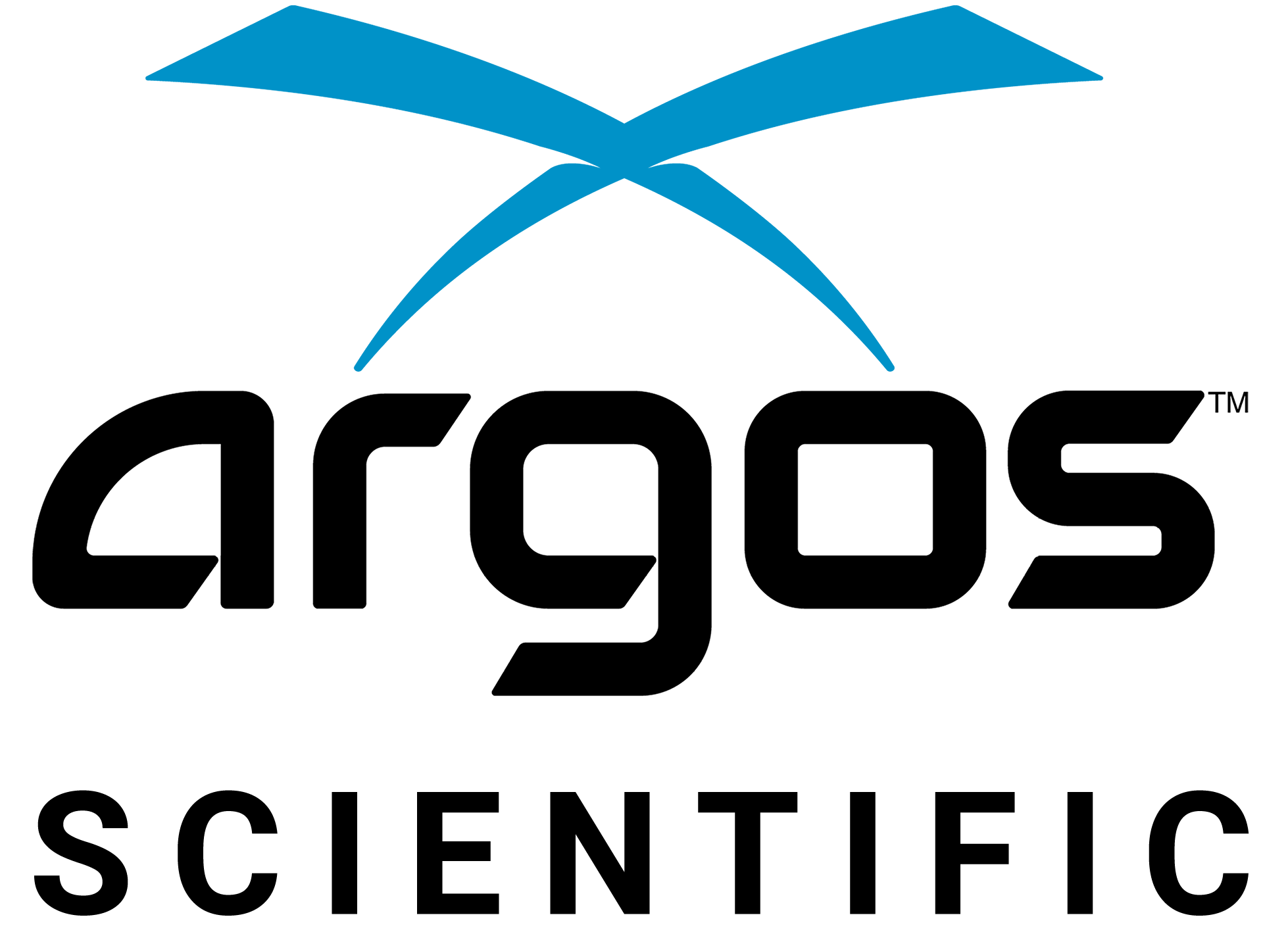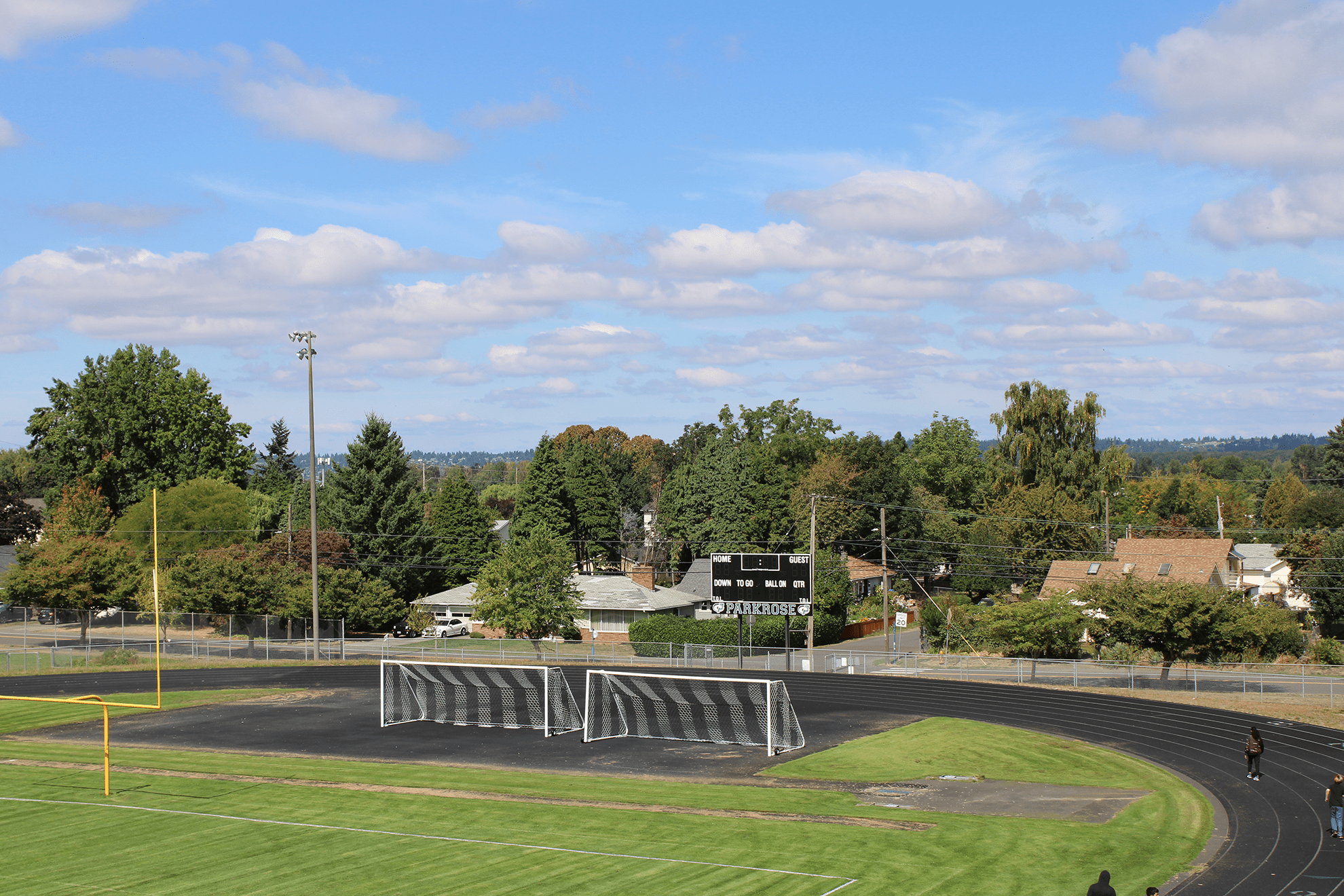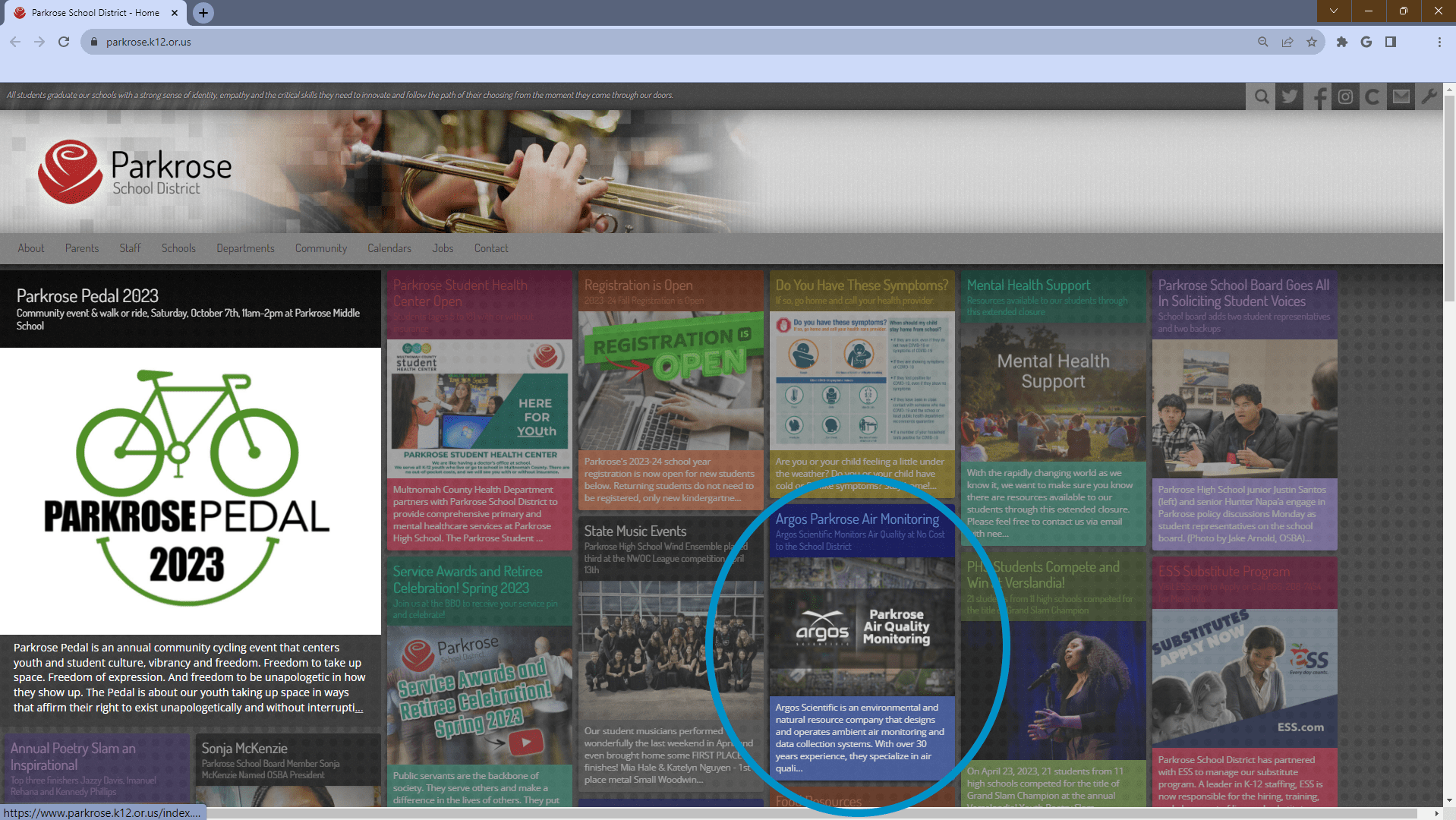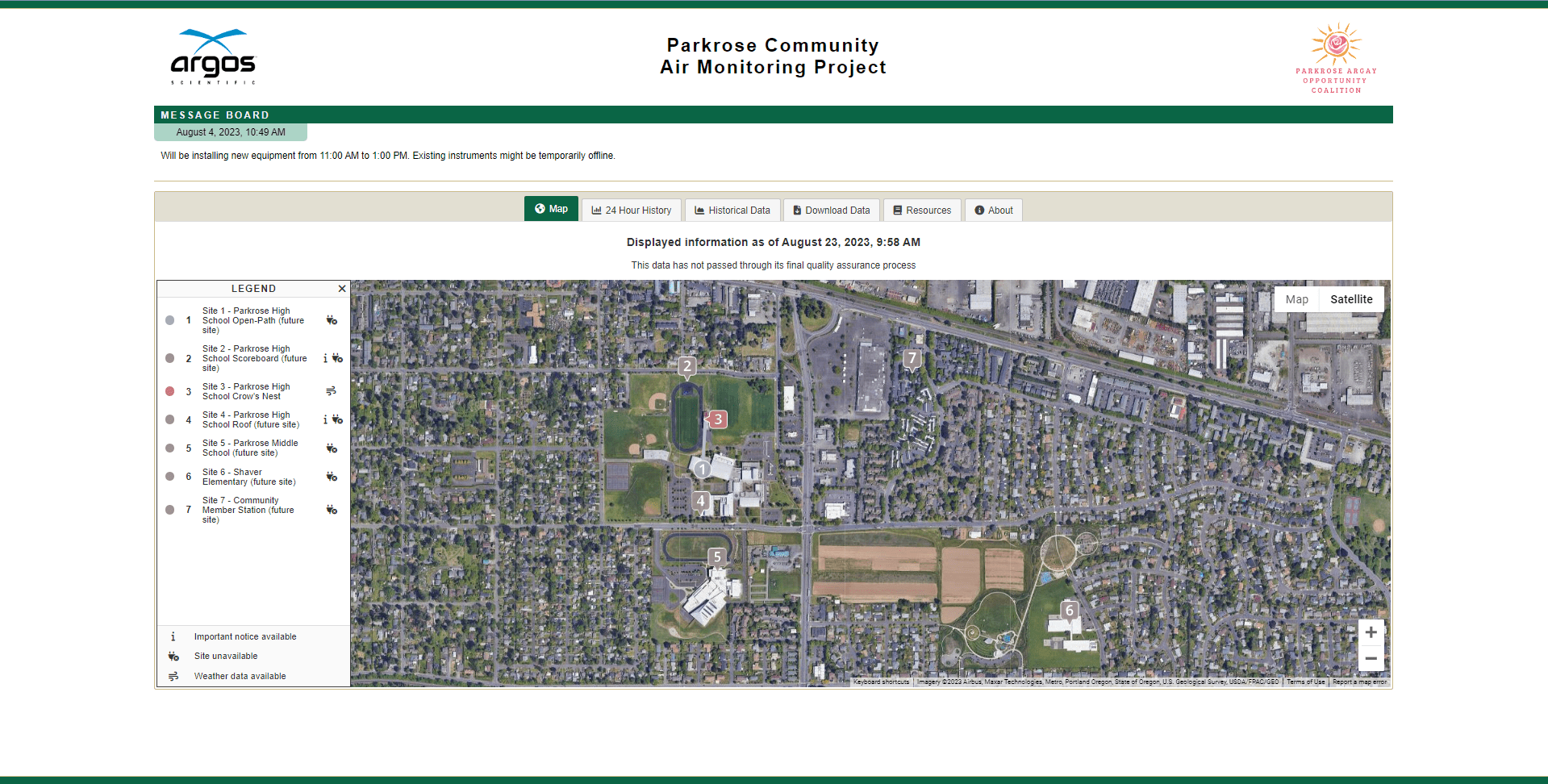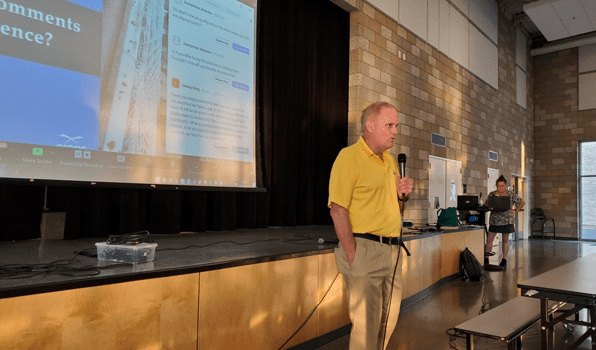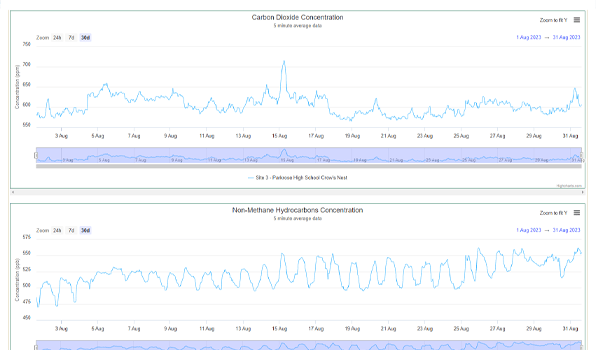In the small community of Parkrose, Portland, tranquility was shattered when the city authorized the establishment of a large, pollutant-emitting factory adjacent to the high school. A wave of protests from parents, students, and teachers was brushed aside as the construction proceeded. A subsequent fire at the site, which unleashed a perilous cloud of pollutants, escalated the community’s concerns, intertwining fears for health and well-being with frustrations about civic oversight.
It was at this juncture that Argos Scientific, Inc. entered the scenario. We implemented a thorough deployment of monitoring equipment across the Parkrose area, meticulously assessing the extent and severity of the air pollution. However, we perceived that monitoring the data and providing quantitative insights into the pollution levels were not the sole necessities. We wanted to help the community understand the situation and what they could do about it. So, we organized workshops and provided educational support, aiming to explain the science behind pollution and equip the people of Parkrose with the knowledge they needed to navigate through this crisis.
Leveraging our proficiency in proposal writing and with a solid backbone of data from our monitoring activities, we assisted the Parkrose community in interfacing with the other stakeholders. We helped them forge powerful, data-backed proposals that did more than just highlight the urgent need for stricter pollution controls. These documents echoed the voices and stories of a community in peril, combining robust scientific data with a compelling narrative of local struggle and resilience. Thus, Parkrose began to transform from a community in crisis to a symbol of informed, collective resistance and action, demonstrating the powerful impact of integrating data monitoring, educational support, and strategic communication in steering a community toward positive change.
